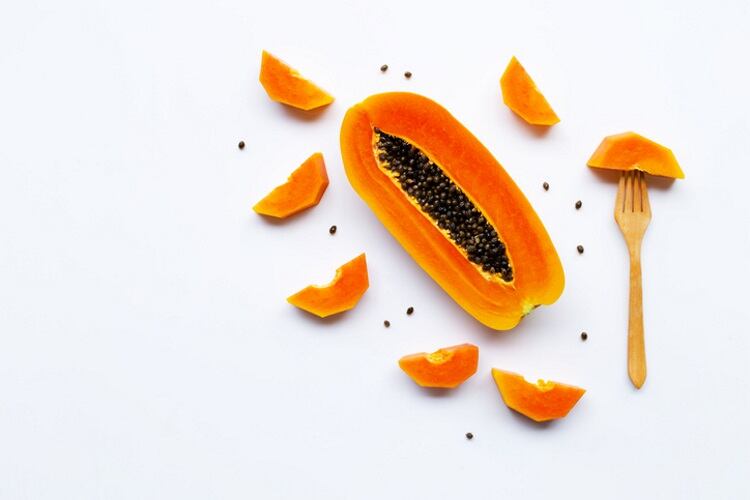Arla Foods Ingredients – a subsidiary of Danish conglomerate Arla Foods – is a global leader in value-added whey solutions. The company’s application team has already developed the first prototype recipes for a protein bar from milk and whey-based ingredients, along with dried papaya pulp sourced from Ethiopia.
The popularity of papaya
Globally, the market demand for tropical fruits has grown steadily over the past two decades. Gaining in popularity worldwide, papaya is ranked third in total global tropical fruit production, behind mango and pineapple.
Papaya has also become an important agricultural export for developing countries. In 2018, global production of papayas was 13.3 million tonnes, led by India with 45% of the world total.
It is also an important crop for Ethiopia. Papaya is the country’s fourth biggest fruit crop and provides a living income for almost 900,000 farmers.
Annually, though, around 30% of the harvest is lost due to spoilage. Solar drying the fruit has been recognised as a low-cost and sustainable opportunity to reduce post-harvest loss. It also makes more of the nutritious fruit available for processing.
Papaya is highly nutritious, being particularly rich in vitamins A, B and C. The pulp also contains protein, calcium, iron, sodium and potassium. Scientists from Addis Ababa University are currently investigating how to ensure the best nutrient retention during the drying process.
“One of our major tasks will be to adapt the recipe to local preferences based on consumer insights,” said Charlotte Sørensen, Arla Foods Ingredients business development manager.
“Another role is to work with local food producers to ensure they have the necessary technology and knowhow to produce it.”
Local interest
Led by GAIN, the project brings together multiple public-private partners, including three Ethiopian food producers – Theday Agro Industry, Africa Juice Tibila and Raya Horti Farm – and the agricultural engineering enterprise Selam TRIAE. The Confederation of Danish Industry (DI) is working with Ethiopian business associations to establish the enabling environment for the business model.
“It’s a co-creation approach to innovation that draws on the expertise and experience of many partners. In four years’ time, we aim to have the entire value chain in place for a nutritious, affordable and commercially viable dried fruit snack that makes the best use of an abundant local crop,” said Sørensen.
In addition, the partnership project will develop a toolkit for training food processing workers and facilitate the creation of new jobs in Ethiopia’s food industry.
“Farmers and food processors are very interested in this initiative to produce high quality, affordable products,” said GAIN project leader in Ethiopia Meseret Worku.
“We will support them with nutritional and value chain expertise and with creating consumer demand. Through this, we can contribute to the Ethiopian government’s ambition to reduce malnutrition-related stunting to zero by 2030.”
The project is supported by funding from the Danida Market Development Partnerships programme.





